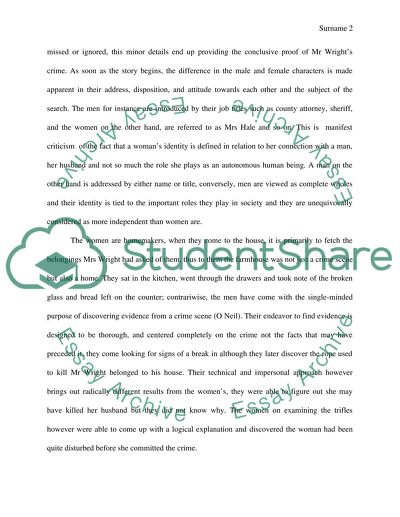Cite this document
(“Susan glaspell trifles gender roles Essay Example | Topics and Well Written Essays - 1500 words”, n.d.)
Retrieved from https://studentshare.org/english/1471798-susan-glaspell-trifles-gender-roles
Retrieved from https://studentshare.org/english/1471798-susan-glaspell-trifles-gender-roles
(Susan Glaspell Trifles Gender Roles Essay Example | Topics and Well Written Essays - 1500 Words)
https://studentshare.org/english/1471798-susan-glaspell-trifles-gender-roles.
https://studentshare.org/english/1471798-susan-glaspell-trifles-gender-roles.
“Susan Glaspell Trifles Gender Roles Essay Example | Topics and Well Written Essays - 1500 Words”, n.d. https://studentshare.org/english/1471798-susan-glaspell-trifles-gender-roles.


